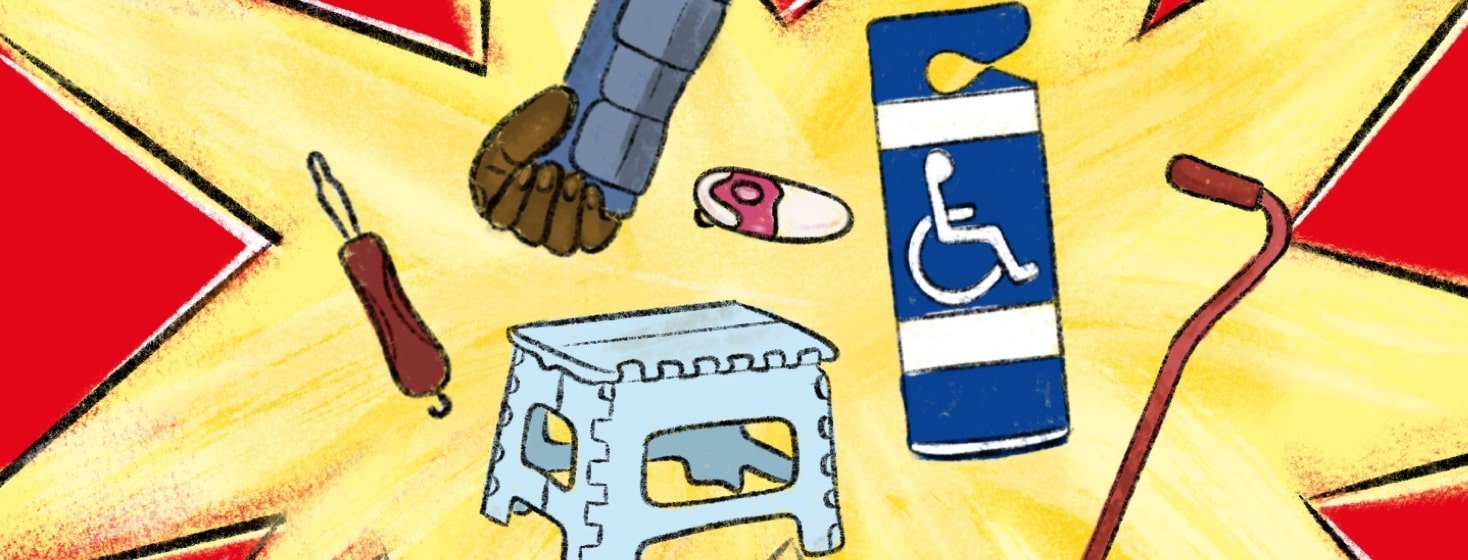Top 4 Must-Have Assistive Devices
Having psoriatic arthritis (PsA) can make everyday tasks difficult, and people living with the disease learn many coping strategies to get through their daily routine.
A look at assistive devices to improve life with PsA
In our Psoriatic Arthritis In America survey, we asked people what assistive devices they use to help manage daily tasks. The top four most popular assistive devices are:
- Automatic jar or can openers (50%)
- Disability license plates or parking placard (50%)
- Step stools (44%)
- Braces or splints (35%)
One way many people with PsA deal with the changes in their day-to-day tasks is by using assistive devices. Let's take a look at some of the more popular ones.
Automatic jar or can openers
Tasks like unscrewing a jar lid, or using a standard can opener to open up canned food, can be challenging and painful for anyone who has hands affected by psoriatic arthritis.
Assistive devices like automatic can openers and jar openers can make up for a weak grip and lack of hand strength, allowing people with psoriatic arthritis to move about their kitchen with more ease.
Disability license plates or parking placards
For people who have PsA affecting their hips, knees, ankles or feet, walking can be difficult and being able to access parking specifically designated for people with disabilities can make it easier to run everyday errands and participate in many social activities.
Each state has slightly different guidelines for handicapped license plates or parking placards. In most instances, people need to prove their disability, such as being unable to walk without an assistive device such as a cane, wheelchair, or another person.
Psoriatic arthritis that severely affects your ability to walk is generally covered under state guidelines, with appropriate documentation from a licensed healthcare professional. Once a handicapped license plate or parking placard is installed in your car, you can access specifically marked parking spaces.
Step stools
Many of us need a boost every now and then to be able to reach higher storage spaces, and step stools are one of the most common assistive devices used by people living with PsA.
Psoriatic arthritis causes stiffness and lack of range of motion in joints affected by the disease, which can create limitations in how far you can reach or stretch.
Step stools are a handy tool to have around the house to enable people living with PsA to access items on upper shelves in the bathroom, bedroom, or kitchen.
Braces or splints
Joints affected by PsA are painful and may be weakened. Many people with PsA find that wearing a brace or splint can help provide support. Braces and splints are available for a variety of joints, including knees, ankles, wrists, and elbows.
Other assistive devices for life with PsA
While these are the most popular assistive devices among survey respondents, there are many other devices that can help make everyday tasks easier and less painful.
People living with PsA may use canes, crutches, walkers, or orthotics to make walking easier. Some people with PsA use devices that make dressing easier, including zipper pulls and sock aids.
Others use a grabber or reacher, shower chairs and doorknob covers. There are many assistive devices that have been designed to help people with limitations from conditions like psoriatic arthritis move about their day and maintain their independence.

Join the conversation